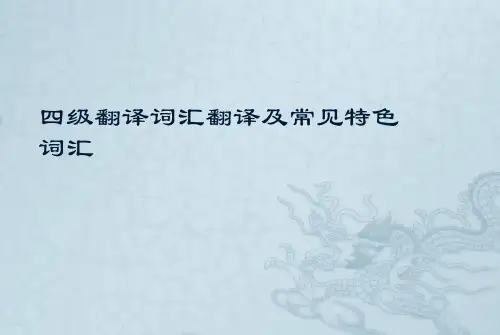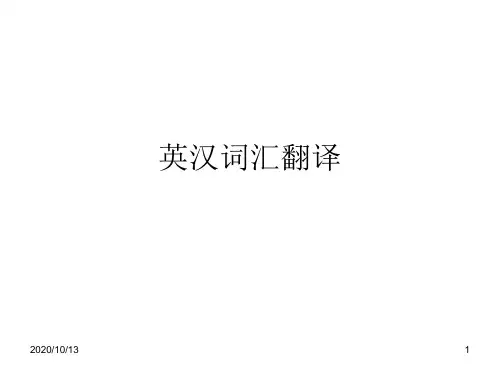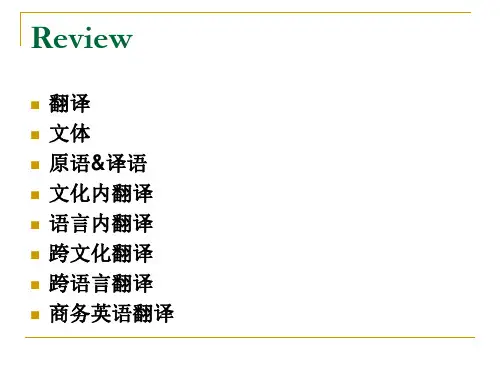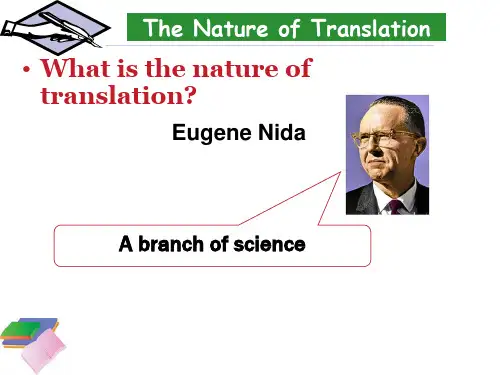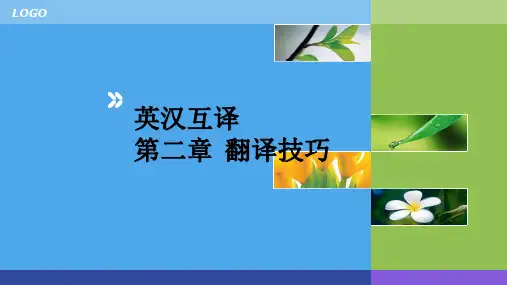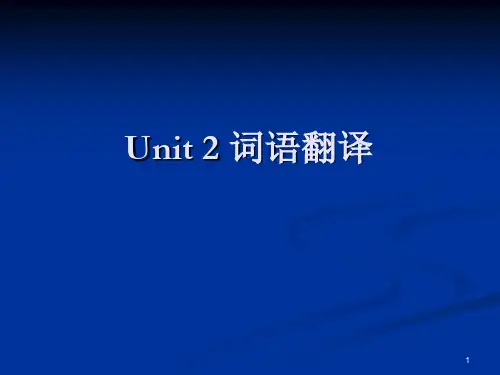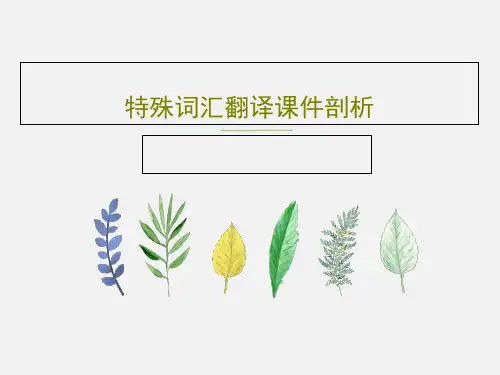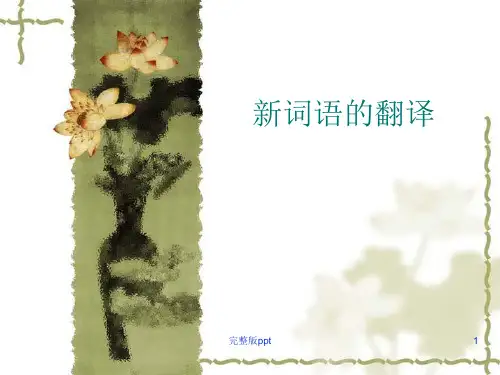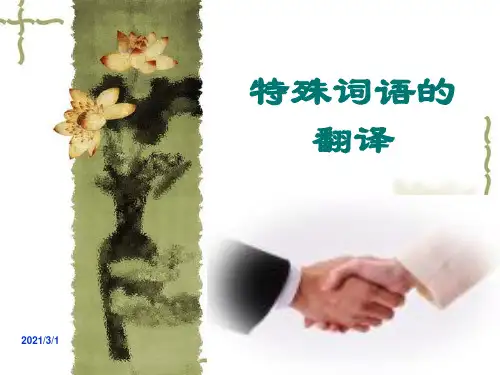原文:于是转喜为怒,转赞美为责备挑剔,转首 肯为摇头。
译文:Then happiness turns to anger, praise to scolding and nit-piking, and head-nodding to head-shaking.(删除重复的谓语动词)
the Ming and Qing Dynasties.
(4) 形容词或副词名词 由于语法结构的修辞的需要,汉语的形容词和副
词也可以 转译成英语(的名词。
原文:.....只有这些生灵自由自在地享受着这个 黄昏。
译文:...leaving these living things to enjoy this moment of dusk with full ease and freedom.
(5) 名词动词 汉语的名词由英语的动词表达,此时汉语中修饰
名词的形 容词也随之改( 为英语中作状语使用的副词。 原文:大自然对人的恩赐,无论贫富,一律平等。 译文:People, poor or rich, are equally favored by Nature.
3.词的增补
(1)语法需要 由于汉英两种语言的差异,汉译英时往往需要补充汉语里
省去的词语或没有的词类,使译文符合英语语法的要求。 增补的词多为冠词(英语所特有)、代词或名词(充当句 子的主语、宾语、定语等成分)、连词和介词等。 原文:农业社会的人比工业社会的人享受差得多,因此欲 望也小得多。 译文:People in the agriculture society enjoyed far less than people in the industry society, thus their desires are far less either. 分析:英语中用的最多的介词有at, by , for, from, in, of, on, to和with九个。这些介词是连接英语句子的重要纽带,在 英语中起着极其重要的作用。汉译英时,要根据上下文搭 配灵活地选择介词。
